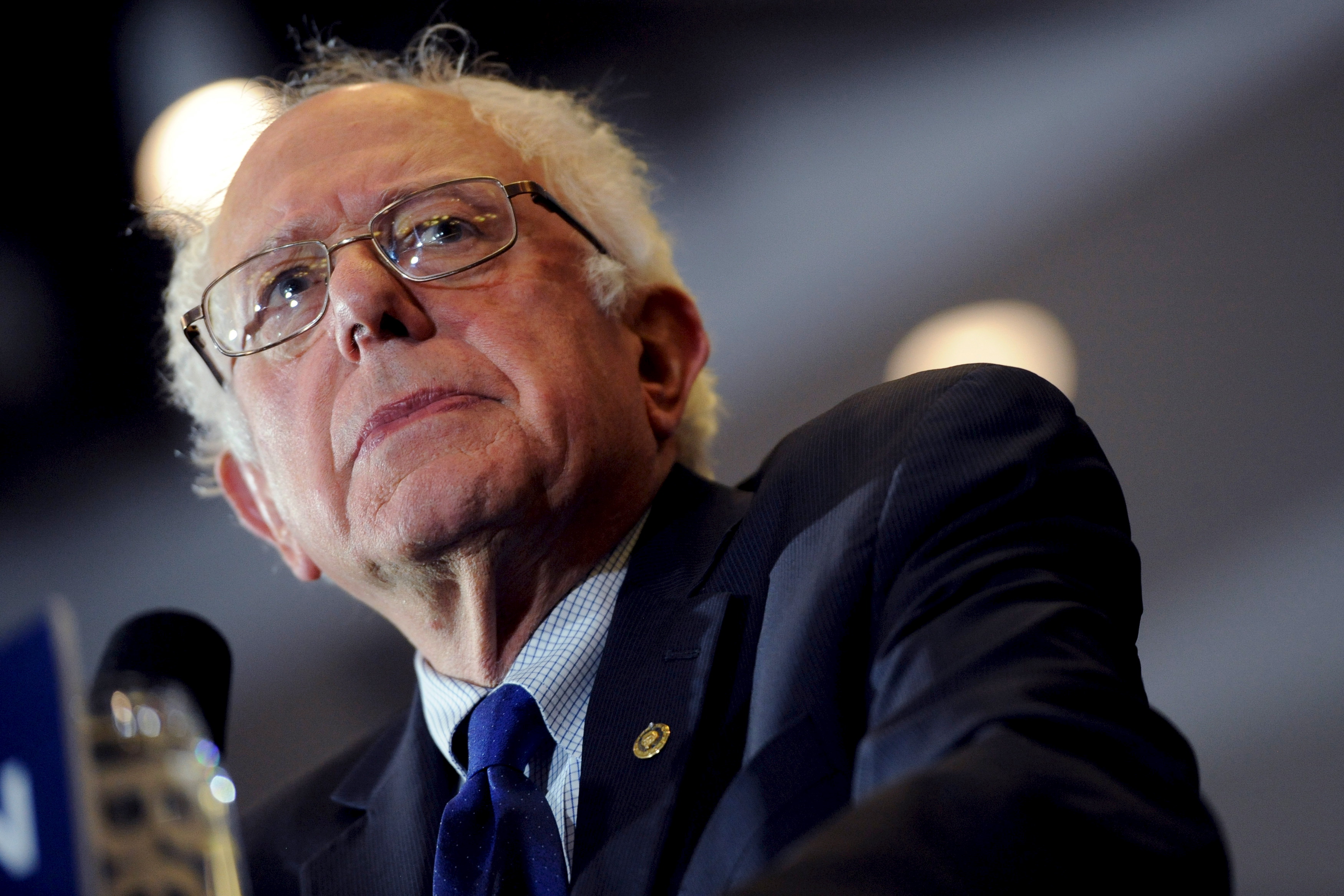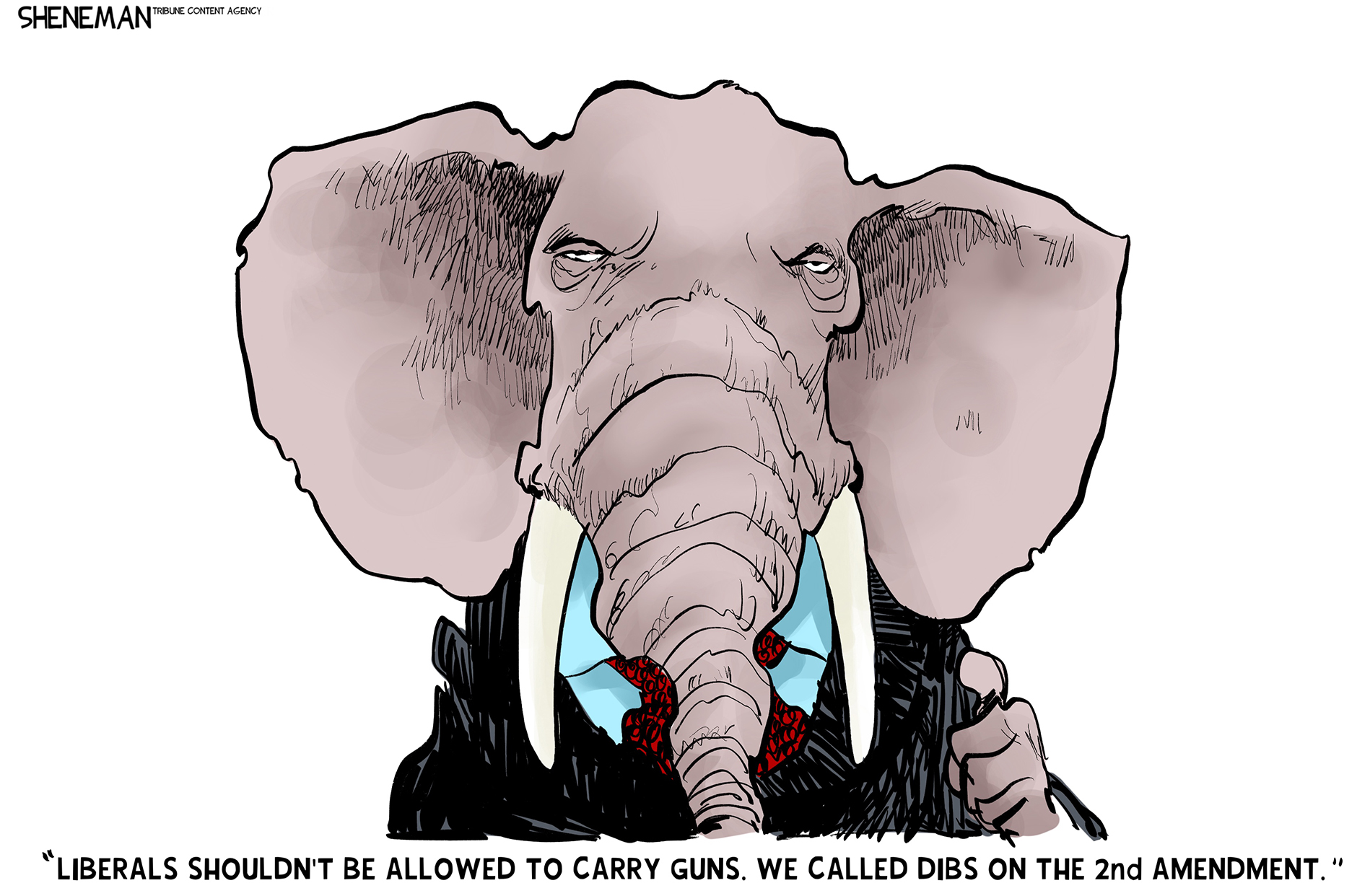Is Bernie Sanders ready for prime time?
He could be transformational. Or he could be just a president on a soap box, yelling.


Bernie Sanders had a very good election day on Tuesday, the latest in a string of them. He beat Hillary Clinton by about 13 percentage points in the Wisconsin Democratic primary, a larger-than-forecast margin of victory. If he wins the New York, Pennsylvania, and California primaries by such lopsided margins, he may well prove the pointy headed number-crunchers and corporate media pundits wrong, and seize the Democratic nomination.
But Sanders' great Tuesday shouldn't overshadow his less-glorious Monday, when the New York Daily News published the transcript of Sanders' April 1 interview with the paper's editorial board. Sanders was angling for the paper's endorsement before the New York primary on April 19, and the general consensus is that the chat, full of embarrassingly vague-sounding answers from the Vermont senator, did not go well for Sanders. A representative take, from The Washington Post's Chris Cillizza: It was "pretty close to a disaster."
The reason the interview is supposedly so devastating is that nationally, the knock against Sanders is that he has just a few issues he cares deeply about and articulates passionately, but that he is, in essence, a one-trick pony who now perhaps hasn't even thought through his one trick very deeply. "If the Sanders campaign has shied away from deep dives into policy, this interview might be why," says David Graham at The Atlantic: "The candidate reveals himself as a far defter diagnostician than clinician."
The Week
Escape your echo chamber. Get the facts behind the news, plus analysis from multiple perspectives.

Sign up for The Week's Free Newsletters
From our morning news briefing to a weekly Good News Newsletter, get the best of The Week delivered directly to your inbox.
From our morning news briefing to a weekly Good News Newsletter, get the best of The Week delivered directly to your inbox.
You can read the transcript and make your own judgment, or peruse Jonathan Capehart's "nine moments in the Sanders conversation that left me agape" — or, on the other hand, Mike Konczal's detailed defense of Sanders' answers at the Roosevelt Institute ("If anything, Sanders is too wonky"), or the broader one by Peter Eavis at The New York Times.
Sanders rarely talks in specifics, and seems rarely pressed to do so. The questions the Daily News board asked him, as Sanders said many times, were "very fair" ones — with the exception of the subway gotcha, perhaps — but they are questions Sanders seldom faces. And if he does get the questions — in debates, for example — he doesn't answer them directly.
In the interview, he said he hadn't thought about some pretty big issues a president is in control of, like drone policy. He also couched a lot of his answers as his personal opinions. Why doesn't Sanders support the Palestinian Authority taking its Israel grievances before the International Criminal Court? "Look, why don't I support a million things in the world? I'm just telling you that I happen to believe."
Having an encyclopedic knowledge of foreign policy or the names of world leaders or the specific laws you would tell your attorney general to use to prosecute bank executives — these aren't prerequisites for being president. Sanders has a long list of big policy changes he wants to enact. "Think big," he told his supporters after winning Wisconsin. The details can be worked out after you win, or by the people you appoint to tackle each issue. But presidents are more than cheerleaders and visionaries. "Sanders isn't running for chief ideologue — he's running for chief executive," The Atlantic's Graham notes.
A free daily email with the biggest news stories of the day – and the best features from TheWeek.com
This is the central question mark of the Sanders campaign: How would he get anything passed through Congress? How would his revolution work, exactly? "How do you mobilize that many people, given voter apathy, voter cynicism, the sense, even though you're not, that all you guys are the same?" as Los Angeles Times editorial writer Scott Martelle asked Sanders when he sat down for an interview with that newspaper on March 23. Here's Sanders' answer:
Good. Very good question. And if I had the definitive answer, I would give it to you. But I'll tell you something that has really gratified me in this campaign. And that's an absolutely fair question. And it is not easy. What you're really asking is, at a time when we have one of the lowest voter turnouts of any major country on Earth, at a time when many people don't even know the name of the vice president of the United States.... What you're saying is how do you turn that around? And that is very, very difficult. And I don't have a magical solution. [Sanders, to LA Times editorial board]
"The whole thrust of my campaign is to ask, why not?" Sanders said later in the interview. It's a good question, and an attractive one. Why can't America rejigger the tax system to help the middle class and poor? Why can't the "wealthiest country in the history of the world" provide free college tuition and health care and paid family leave like other countries? Why is it fair or even good policy to let wealth continue to trickle upward to the super-rich? But he has trouble with the "how," not to mention the possible side effects of breaking up banks or destroying the private health insurance industry.
When pressed, Sanders explains that his "revolution" represents a huge upsurge in grassroots civic engagement, like the Civil Rights movement and gay rights movement. None of those movements were led by Washington, and certainly not by the president. A country's leader, almost by definition, cannot lead a revolution. Sanders knows that. "At the essence of everything that I'm saying, every answer that I'm giving to you, is that no president, not Bernie Sanders, can do these things alone," he told the LA Times editorial board.
Bernie Sanders isn't a fool. He would bring some interesting and unique attributes to the presidency — has another president ever lived in Israel before? Or been less beholden to a political party? He could be transformational. Or he could be just a president on a soap box, yelling.
When the LA Times editorial board asked Sanders how he planned to win, he told them, "You don't know me very well." Well, now he has our ear. Maybe it's time we get past the small-talk stage and see if we're a match.
Peter has worked as a news and culture writer and editor at The Week since the site's launch in 2008. He covers politics, world affairs, religion and cultural currents. His journalism career began as a copy editor at a financial newswire and has included editorial positions at The New York Times Magazine, Facts on File, and Oregon State University.
-
 Judge slams ICE violations amid growing backlash
Judge slams ICE violations amid growing backlashSpeed Read ‘ICE is not a law unto itself,’ said a federal judge after the agency violated at least 96 court orders
-
 Political cartoons for January 29
Political cartoons for January 29Cartoons Thursday's political cartoons include 2nd amendment dibs, disturbing news, and AI-inflated bills
-
 The Flower Bearers: ‘a visceral depiction of violence, loss and emotional destruction’
The Flower Bearers: ‘a visceral depiction of violence, loss and emotional destruction’The Week Recommends Rachel Eliza Griffiths’ ‘open wound of a memoir’ is also a powerful ‘love story’ and a ‘portrait of sisterhood’
-
 The billionaires’ wealth tax: a catastrophe for California?
The billionaires’ wealth tax: a catastrophe for California?Talking Point Peter Thiel and Larry Page preparing to change state residency
-
 Bari Weiss’ ‘60 Minutes’ scandal is about more than one report
Bari Weiss’ ‘60 Minutes’ scandal is about more than one reportIN THE SPOTLIGHT By blocking an approved segment on a controversial prison holding US deportees in El Salvador, the editor-in-chief of CBS News has become the main story
-
 Has Zohran Mamdani shown the Democrats how to win again?
Has Zohran Mamdani shown the Democrats how to win again?Today’s Big Question New York City mayoral election touted as victory for left-wing populists but moderate centrist wins elsewhere present more complex path for Democratic Party
-
 Millions turn out for anti-Trump ‘No Kings’ rallies
Millions turn out for anti-Trump ‘No Kings’ ralliesSpeed Read An estimated 7 million people participated, 2 million more than at the first ‘No Kings’ protest in June
-
 Ghislaine Maxwell: angling for a Trump pardon
Ghislaine Maxwell: angling for a Trump pardonTalking Point Convicted sex trafficker's testimony could shed new light on president's links to Jeffrey Epstein
-
 The last words and final moments of 40 presidents
The last words and final moments of 40 presidentsThe Explainer Some are eloquent quotes worthy of the holders of the highest office in the nation, and others... aren't
-
 The JFK files: the truth at last?
The JFK files: the truth at last?In The Spotlight More than 64,000 previously classified documents relating the 1963 assassination of John F. Kennedy have been released by the Trump administration
-
 'Seriously, not literally': how should the world take Donald Trump?
'Seriously, not literally': how should the world take Donald Trump?Today's big question White House rhetoric and reality look likely to become increasingly blurred
